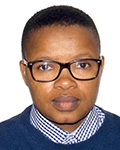2018
Babalwa Magoqwana
- Senior Lecturer
- Nelson Mandela Metropolitan University

Abstract
This project seeks to challenge some of the narrow conceptions that define uMakhulu (grandmother in isiXhosa language) purely in economic and seniority terms in African households. It goes beyond the narrative of uMakhulu (uGogo) as a “safety net” and “care-giver” under harsh socio-economic conditions in the rural households. The project seeks to position uMakhulu as an institution of knowledge that transfers not only ‘history’ through “iintsomi” (folktales) but also a body of indigenous knowledge that stores, transfer and disseminate knowledge on food, language and spirituality. The project makes use of Oyèrónk?? Oy?wùmí’s (1997, The Invention of Women) understanding of the bio-logic to argue for uMakhulu as productive body that shapes our spiritual awareness and provides survival wisdom in the African household. This project uses Xhosa oral traditions through amabali (stories), intsomi (folktales) songs and clan names (iziduko) from elderly women’s life histories to formulate a woman-centered vernacular framework in understanding Sociology of the Eastern Cape. These methodologies explore the links on intergenerational knowledge transfer methods within an increasing innovative global technological economies context. The project hopes to further develop the Sociology of the Eastern Cape through the eyes and experiences of uGogo/uMakhulu and challenge the patriarchal bias that has shaped the Eastern Cape history through isihelegu sika Nongqawuse (Nongqawuse’s catastrophe of 1856).

